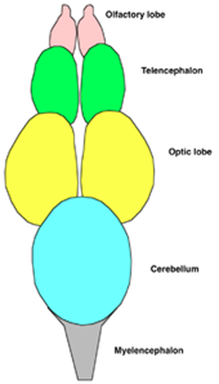THE LOVE OF FABLES
"An appalling and horrible thing has happened in the land. The prophets prophesy falsely and my people love it so" Jeremiah 5:30-31 [Holy Bible Paraphrase]
While the Prophet Jeremiah was writing about what was happening in the Nation of Israel before the invasion of the King of Babylon his words could easily be applied to many situations that exist in our days. Unfortunately, like mankind from the beginning of time, we love fables and half-truths more than we really love truth.
For many years I have written and spoken about the fables that exist in fly-fishing, and I have not been alone. However, the myths and fables continue to exist and even become more prevalent. I have concluded that the reason that we cling to myths and fables is that they make us look good and the truth – well, not so much.
One of the most prevalent myths is that fish are smart and that's why we have trouble catching them, especially those big ones. Unfortunately, for our ego, the truth is that fish are not smart or even intelligent, as we measure intelligence. The brain of the average fish is very small relative to body size when compared to other invertebrates. It is typically one fifteenth the size of a similar sized bird or mammal. Sharks are an exception to this rule having a relatively large and well developed brain.
 At the front of the fishes brain are two olfactory lobes and they are attached to the telencephalon. The olfactory lobes receive and process signals from the nostrils and in fish that hunt primarily by smell these lobes are very large. Attached to the olfactory lobes is the telencephalon. In fish the telencephalon is primarily concerned with olfaction. These two structures comprise the forebrain. Not much thought takes place here.
At the front of the fishes brain are two olfactory lobes and they are attached to the telencephalon. The olfactory lobes receive and process signals from the nostrils and in fish that hunt primarily by smell these lobes are very large. Attached to the olfactory lobes is the telencephalon. In fish the telencephalon is primarily concerned with olfaction. These two structures comprise the forebrain. Not much thought takes place here.
The forebrain is connected to the midbrain by the diencephalon [below the optic lobe in the diagram]. It regulates hormones and internal body temperature. The pineal body in the same location detects light and maintains the circadian rhythms and controls color changes in the skin. The midbrain contains the two optic lobes and is very large in fish that hunt by sight, such as most species of trout.
The hindbrain containing the cerebellum is involved in swimming and balance, and is typically the biggest part of the brain.
The brain stem or myelencephalon is located at the posterior end of the fish's brain and is involved in controlling some muscles, body organs, and respiration.
It becomes rather obvious that given the size of the fish's brain and the functions of the various parts that the brain is mostly responsible for maintaining body functions. We can look at a lot of creatures in nature and conclude by the way they do various things that they are intelligent. However, upon closer examination we are forced to conclude that what present itself as intelligence is merely repetitive behaviors that involve survival. This is especially true with fish. Species that hunt primarily by sight, like most of the fish pursued by fly fishers, have very large optic lobes in their brains and a large cerebellum that controls swimming and balance. These structures have nothing to do with intelligence, and the other structures in the brain control functions that regulate such things as hormones, organs, and respirations.
Fish survive by fleeing danger or anything that is perceived as a danger. A fish suddenly sees a shadow appear over the water. That shadow may indicate danger so the fish flees to deeper water or moves under some type of cover. The shadow may not indicate danger but generally fish are unable to differentiate between the harmless shadow of a hawk that doesn't eat fish and an osprey that does. A similar situation exists when something causes a disturbance on the surface of the water near where the fish is located. If that shadow or surface disturbance is caused by an angler they flee.
Since fish do not have any parts of their brains that are reserved for logical reasoning we can conclude that fish do not make a connection that a fly floating overhead is attached to a leader and thus there is a fly fisherman attached to the fly. They have no place in their brain to store memories so they can't possibly remember that they have seen your fly pattern before and remember that it's not a real fly. Fortunately for us fish are not that smart or we would have stopped catching them centuries ago.
I think the myth that fish are smart is a convenient excuse for our failures. After an hour of casting one fly pattern after another to a steadily feeding fish that never even gives us the satisfaction of an inspection/refusal for our best efforts the idea that fish are intelligent gives us an out. In reality we have just been humbled by a creature with a brain slightly larger than a garden pea.
But, you might say, what about selectively feeding fish. Several trout species are noted for being selective feeders. Many prestigious tomes and countless barrels of ink have been expended on this very subject. Surely a selectively feeding fish is demonstrating intelligence. Well, let's look at it this way. First, fish do not have a brain that permits logical thought so something else must be at work to account for selectivity.
Most anglers have experienced the following scenario. At the beginning of a hatch trout will often ignore the first insects that hatch but once the hatch is in full swing they will eat nothing else. Then, when the hatch begins to wane and they begin to feed on something else, they refuse to eat the insect that they were consuming with gusto just a few days ago. The picture is something like this; you have been eating steaks and then you switch to eating pork chops. When someone offers you a juicy steak cooked just the way you like it you insist that they fix you a pork chop. Even though you recognize that steaks are good to eat, you've eaten them before but now you reject them. Is that an intelligent choice? You decide.
Just last week before I left Montana for our winter digs in Arizona I slipped out to spend a few more minutes on my favorite spring creek. It was overcast with a slight breeze blowing upstream. Fish were rising on one of my favorite pieces of water and I could see that a good hatch of fall Baetis were hatching. After I rigged up and waded into place I began to see that there were other flies on the water along with the Baetis. I was encountering a late hatch of Pale Morning Duns, and there were a fairly good number of those flies emerging along with the Baetis. The Baetis were size 20 and smaller but the PMD duns could easily have been imitated by a sparely dressed 16 or a size 18. They represented a much more substantial meal than a mouthful of Baetis, but these tasty morsels drifted along untouched and the trout went on rising to the emerging Baetis. I watched several of the juicy PMD duns float right over steadily feeding trout without the trout making any effort to inhale them. Just a few weeks ago those duns would have been gobbled up with gusto.
This illustrates what we call "selectivity" but it does not illustrate intelligence. Intelligence would tell the fish to eat those PMD duns along with the more abundant Baetis. However, like a train that is confined to running on a track, those trout were locked onto eating one specific type of fly and even if a steak [PMD] came floating along they went on eating pork chops [Baetis].
